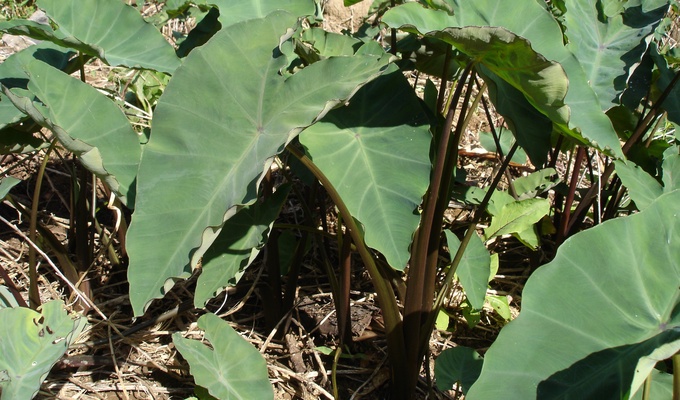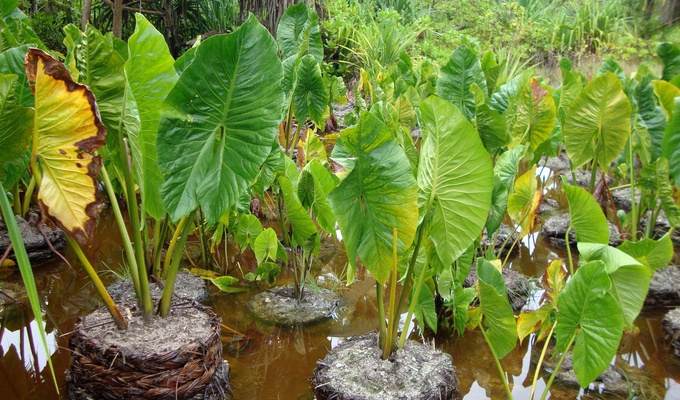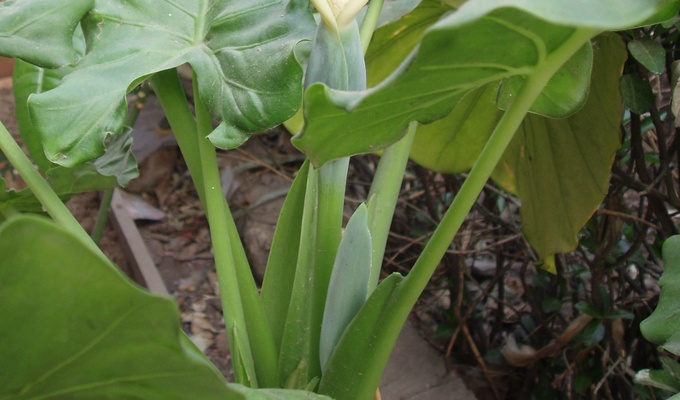Taro (Colocasia esculenta), also called arbi, gabi, and jimbi, is a root vegetable, widely cultivated in African, Oceanic, and South Asian cultures for its edible corms and leaves. The corms are usually roasted, baked, or boiled, producing a starchy mass that can easily be adapted to stews, mashes, or pancakes, or included in baked goods and drinks. They have a sweet, nutty flavor and are easily adapted to both sweet and savory applications.
When raw, taro leaves (sometimes also called colocasia leaf) and tubers are toxic due to calcium oxalate deposits and sharp structures in its cells. Adequate cooking, or long soaking in cold water, is important before consuming them.


